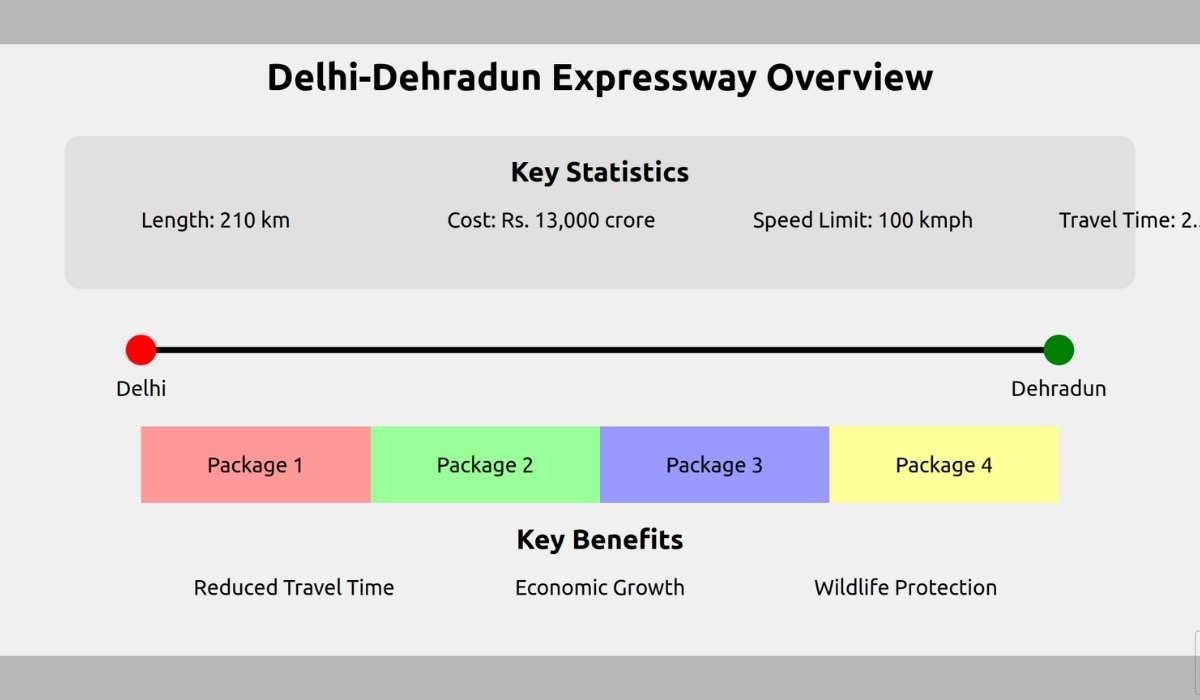Gurgaon, a bustling city in the National Capital Region (NCR) of India, has witnessed significant growth and development in its real estate market over the past few decades. However, the question on everyone’s mind is: what does the future hold for Gurgaon’s real estate? Will prices continue to soar, stabilize, or experience a downturn? In this article, we delve into the various factors that influence the city’s real estate market and explore the potential scenarios that may unfold in the coming years.
A Brief History of Gurgaon’s Real Estate Market
To understand the future, it’s essential to look at the past. Here’s a brief overview of Gurgaon’s real estate market over the years:
- 2008-2009: The real estate market was in a slump, but it started reviving in 2009.
- 2009-2012: The market experienced a boom, with prices steadily increasing until 2012.
- 2012-2018: Prices stabilized and then started falling during this period.
- 2018-2021: Prices remained stable until 2021.
- 2021-Present: The market has witnessed the longest boom and the most significant growth in this period.
Despite the ups and downs, investors who bought properties in Gurgaon in 2008 are likely to be in profit today, as the overall trend has been upward.
Factors Supporting a Potential Price Increase
Several factors suggest that Gurgaon’s real estate prices may continue to rise in the future:
Aspirational City
Gurgaon has become an aspirational city, where owning a property is a matter of prestige. As the city’s reputation grows, so does the demand for its real estate.
“Gurgaon is now an aspirational city. It has now reached the level where buying a flat in Gurgaon is a great thing as compared to necessity.”
Job Opportunities
Gurgaon is a hub for multinational companies, and the Indian economy’s growth has led to an increase in job opportunities in the city. This, in turn, drives the demand for housing.
Unlock Your Dream Home Today!
Get personalized real estate insights delivered straight to your inbox.
“Of course I can tell you that the way the Indian economy is growing and many multinational companies are coming, we have also got the benefit of this. Even now, offices are increasing, employees are increasing, so it’s not like Gurgaon is not offering economic activity.”
Strategic Location
Gurgaon’s strategic location, with improving connectivity to the airport, IT hubs, and other developments, makes it an attractive destination for homebuyers and investors.
“So as their connectivity is increasing, They are getting more connected to airport, they are getting connected to other developments like Indian Interest Convention Centre, there are other IT hubs. You make a bridge, connectivity is good.”
Increased Purchasing Power
The purchasing power of people in India has increased significantly, with many individuals capable of investing in high-value properties.
“So even in the villages, you can easily recover 1-2 crores by selling your land whether you are from Bihar, Bengal, UP, you are from any state Punjab, Haryana, so now in today’s credit, you can easily recover 1-2 crore rupees by selling your property so every person has their parental home old real estate investments so the size of the investment ticket has increased because overall when you buy property in Gurgaon you must have seen that people sell their assets because the value of that place has increased a lot, so now their purchasing power is more.”
NRI Investment
Non-Resident Indians (NRIs) are increasingly investing in Gurgaon’s real estate market, considering it a preferred destination due to the city’s world-class facilities and infrastructure.
“The HNI level client NRI prefers Gurgaon to other places. Because I meet NRI myself, they feel that the kind of work they are doing in their home country, means in their country where they are living. If they want to do the same kind of work similarly or give similar kind of schools, hospitals to their children, give similar kind of facilities, do similar kind of business, then they feel Gurgaon as a best place.”
Potential Reasons for Market Stability or Downturn
While there are several factors supporting a potential price increase, it’s crucial to consider the aspects that may lead to market stability or a downturn:
Infrastructure Challenges
Gurgaon’s infrastructure has been a cause for concern, with issues such as traffic congestion, inadequate public transportation, and poor road conditions. If these problems persist, they may deter potential buyers and investors.
“Gurgaon is having the worst infrastructure. Secondly, there will be many major problems in Gurgaon today which might force people to leave Gurgaon city.”
Rising Cost of Living
As real estate prices in Gurgaon continue to soar, the cost of living in the city also increases. This may compel some residents to consider relocating to more affordable cities, potentially impacting the demand for housing.
“If by the way, your real estate prices would have increased so much, then the cost of living would have increased, then maybe a very big gentry would have left Gurgaon and would have wanted to go to other cities and they didn’t even go.”
Affordable Housing Challenges
The Deen Dayal Jan Awas Yojana (DDJAY), an affordable housing scheme, has faced criticism for its implementation in Gurgaon. The lack of genuine affordable housing options for the middle-class segment may lead to a demand-supply mismatch.
“Deendayal Avash Yojana came to Gurgaon. Deendayal Avash Yojana would abuse from above that you are selling flats to poor people by taking my name and you are selling flats to 2 families. Now if you understand the concept of DDYJ, DDYJ was never for urban places like Gurgaon.”
Investor Sentiment
Investors play a crucial role in driving the real estate market. If investor sentiment turns negative due to market saturation, delayed projects, or other factors, it may lead to a slowdown in the market.
“On the other hand, if the density increases, Gurgaon will be a very congested place in future. Because what is happening is, like you have made DDYJ, DDYJ is an urban slum, everyone knows that. Now they are building it so slowly. Where 50 families were being built in Gurgaon, there are 100 families Gurgaon can’t handle 50 families, how will it handle 150-200 families The density of sectors has increased, where in 1 sector the open area has been reduced Green areas are not being built, but there is a little planning that is being done In the coming time, the thing that people want to leave behind and come to Gurgaon Open areas, open rooms, maybe at that time Gurgaon will lose this charm This can happen, I am saying the probability that maybe they will improve in future.”
Global Economic Factors
The Indian economy is not immune to global economic challenges. Factors such as inflation, job market instability, and geopolitical tensions may indirectly impact Gurgaon’s real estate market.
“Look, all the problems in the world today, India is not having any problems in India. But it can come in the future, because you will see that there is already inflation in the world, there are many problems with jobs Third thing is the war situation Russia and Ukraine are involved for a very long time Now there is the issue of Israel and Palestine China has encircled Taiwan we are sitting in the world of so many things that if there is such an impact which can impact the Indian economy and vice versa the real estate of Gurgaon then of course the prices can also come down.”
The Role of Developers
Developers play a significant role in shaping the future of Gurgaon’s real estate market. Here are some key considerations for developers:
Focus on the Mid-Segment
While the ultra-luxury segment has been the primary focus for many developers, there is a growing demand for properties in the range of 1.5 to 3 crore rupees. Catering to this segment may help developers tap into a broader market and ensure a more sustainable growth trajectory.
“Even now, If you ask any builder about their plan for the next 2 years, no developer is interested to bring any project which is in the range of 1.5 to 2.5 CR. Ultimately, what do you want to do in the city? Will the city only be made rich?”
Timely Delivery
Developers must ensure timely delivery of projects to maintain investor confidence and avoid delays that may lead to cancellations and a slowdown in the market.
“The developer who is not capable of making a flat without giving an installment tomorrow Please don’t do it Otherwise you will go to jail Because the reason is that if you give 30% on super-instructure tomorrow Then the investor will go on a bond If he has profit, he will sell it. If he doesn’t have profit, he will put it in cancellation. If you put it in cancellation, because the market is slow, it won’t sell. Because there are many inventories, it won’t sell. He won’t give the next installment.”
Competitive Pricing
As more developers enter the market, competition may lead to price adjustments. Developers who can offer competitive prices while maintaining quality standards may have an advantage in attracting buyers.
“Suppose if everyone enters that Then there will be a surplus how they compete with each other, whether they will bring less rate or not will kill each other, kill each other, break each other, etc I don’t know how they will do things So suppose if there is competition between them then they might have 1 benefit that they will come with a lesser price So the lesser price they will bring will impact the market.”
Conclusion
The future of Gurgaon’s real estate market is a complex interplay of various factors, including economic growth, infrastructure development, investor sentiment, and global influences. While the city has witnessed significant growth and price appreciation in recent years, it
is essential to consider the potential challenges that may impact the market’s trajectory.
Developers, investors, and homebuyers must exercise caution and make informed decisions based on a thorough analysis of market trends, regulatory policies, and individual project merits. By focusing on the mid-segment, ensuring timely delivery, and offering competitive prices, developers can contribute to a more sustainable and inclusive growth of Gurgaon’s real estate market.
Ultimately, the future of Gurgaon’s real estate will depend on how well the city addresses its infrastructure challenges, balances the demand-supply dynamics, and adapts to the evolving needs and aspirations of its residents. With careful planning and strategic decision-making, Gurgaon has the potential to continue its growth story and cement its position as a leading real estate destination in India.
Gurgaon's real estate market has experienced a slump in 2008-2009, followed by a boom from 2009 to 2012, stabilization and a fall from 2012 to 2018, stability until 2021, and then the longest boom and significant growth from 2021 to the present.
Factors such as Gurgaon being an aspirational city, the growth of job opportunities, strategic location with improved connectivity, increased purchasing power, and rising NRI investments are driving potential price increases.
Gurgaon's infrastructure challenges include traffic congestion, inadequate public transportation, and poor road conditions, which could deter potential buyers and investors.
As real estate prices soar, the cost of living in Gurgaon also increases, which may compel some residents to relocate to more affordable cities, potentially impacting housing demand.
The DDJAY aims to provide affordable housing, but it has faced criticism for its implementation, leading to a lack of genuine affordable options for the middle-class and a possible demand-supply mismatch.
Investors significantly influence the market; if their sentiment turns negative due to market saturation or other factors, it may lead to a slowdown in the real estate market.
Global economic challenges such as inflation, job market instability, and geopolitical tensions could indirectly impact Gurgaon's real estate market, potentially leading to price decreases.
Developers should focus on the mid-segment housing market, ensure timely delivery of projects, and maintain competitive pricing to attract buyers and foster sustainable growth.
Increased competition among developers may lead to price adjustments, with developers needing to offer competitive prices while maintaining quality to attract buyers.
The future of Gurgaon's real estate market is complex, influenced by factors like economic growth, infrastructure development, investor sentiment, and global influences. With strategic planning, Gurgaon has the potential to continue its growth as a leading real estate destination.
DISCLAIMER
The information provided on this website is for general informational purposes only. While we strive to keep the content up-to-date and accurate, we make no representations or warranties of any kind, express or implied, about the completeness, accuracy, reliability, suitability, or availability of the information, products, services, or related graphics contained on this website.
In no event will we be liable for any loss or damage including without limitation, indirect or consequential loss or damage, or any loss or damage whatsoever arising from loss of data or profits arising out of, or in connection with, the use of this website.
Real Estate Investment Risks
Real estate investments involve significant risks and market volatility. Property values, rental rates, and market conditions can fluctuate. Past performance is not indicative of future results.
Before Making Real Estate Decisions
Before making any real estate decision, we strongly advise you to:
- Conduct thorough due diligence
- Consult with qualified legal, financial, and real estate professionals
- Carefully review all relevant documents and contracts
- Consider your personal financial situation and investment goals
This website does not provide legal, financial, or investment advice. All content is for informational purposes only and should not be construed as professional advice or recommendations.
By using this website, you acknowledge and agree to these terms. We reserve the right to modify this disclaimer at any time without notice.







